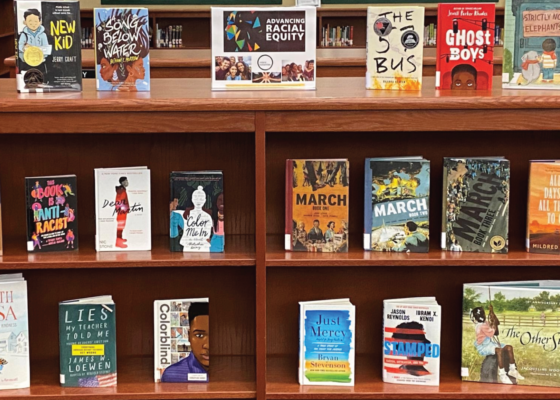Join Indiana Humanities on a Quest Marking the 50th Anniversary of Dr. Martin Luther King, Jr.’s Assassination
January 10, 2018Around this time every year, if you’re an avid Twitter user like I am, you’ll start to notice all kinds of Martin Luther King, Jr. content start to populate your…
Around this time every year, if you’re an avid Twitter user like I am, you’ll start to notice all kinds of Martin Luther King, Jr. content start to populate your feed. Sometimes it’s delightful ephemera like this picture of Dr. King shooting pool (swoon!), but more often it’s links to speeches or historians’ insights into Dr. King’s work and the black freedom struggle.
Last January, my curiosity was piqued when I saw a post about Dr. King’s Nobel Prize acceptance speech, “The Quest for Peace and Justice,” from 1964. I’m a former high school U.S. history teacher who later worked at a social history organization—I thought I had a good handle on most of Dr. King’s big speeches. But I had never read his Nobel lecture. Curious, I clicked through.
Am I glad I did! In his speech, Dr. King compares the world’s technological progress—the dawn of computers, the launch of the first man into orbit, telecommunications that could shrink the globe—with the slow and difficult pace of social change. This passage eloquently describes the tension:
Modern man has brought this whole world to an awe-inspiring threshold of the future. He has reached new and astonishing peaks of scientific success. He has produced machines that think and instruments that peer into the unfathomable ranges of interstellar space. He has built gigantic bridges to span the seas and gargantuan buildings to kiss the skies. His airplanes and spaceships have dwarfed distance, placed time in chains, and carved highways through the stratosphere. This is a dazzling picture of modern man’s scientific and technological progress.
Yet, in spite of these spectacular strides in science and technology, and still unlimited ones to come, something basic is missing. There is a sort of poverty of the spirit which stands in glaring contrast to our scientific and technological abundance. The richer we have become materially, the poorer we have become morally and spiritually. We have learned to fly the air like birds and swim the sea like fish, but we have not learned the simple art of living together as brothers.
Deep in the midst of planning for our Quantum Leap initiative, little bells started to go off in my head. Here was a lesser known speech by one of the 20th century’s most important thinkers, most important humanists, pointing out the contradictions of our technologically advanced society. Could we, I wondered, build a program around it?
Though Dr. King starts by enumerating the unprecedented benefits of scientific advancement, he doesn’t want us to pat ourselves on the back. If we can solve these problems—how to put a man on the moon, how to eradicate polio—then surely, Dr. King challenges us, we can solve other seemingly intractable, messy challenges: building an equitable, just society at home and laying down our terrifyingly sophisticated and powerful weapons around the world.
It’s exactly this spirit of possibility and problem-solving that so intrigues me about the STEM fields. A can-do-it, we-can-solve-it attitude is a hallmark of Hoosier history and American society. Indeed, it’s one of the “animating ideas” of Quantum Leap. But we don’t approach all challenges with this spirit, especially, it often feels, social problems. It’s a contradiction worth talking about.
Given that the 50th anniversary of Dr. King’s assassination falls during the second year of our Quantum Leap initiative—and during a time that feels eerily similar to Dr. King’s own, with the threat of nuclear war hanging over us and uneasy relations and a sense of alienation among Americans at home—I can’t imagine a better time to revisit “The Quest for Peace and Justice.”
To help Hoosiers think, read and talk about Dr. King’s important and thought-provoking speech, Indiana Humanities is sponsoring a new discussion program, “The Quest.” We’ve created a free discussion toolkit that anyone can use to host a conversation with friends, family or neighbors; thanks to a sponsorship from Kroger, schools, libraries, churches and other tax-exempt organizations are eligible to receive a $100 stipend for hosting.
Every Quest discussion will look a little different, depending on what ideas from the speech you and your community feel are most important to talk about. Some may focus on technology and how it may be used for social change—or how it can distract us from the real issues right in front of us. Some may focus in on Dr. King’s idea of a modern “poverty of spirit” and how we bring together the two realms, internal and external, he describes. You may find it fruitful to explore Dr. King’s warnings about militarization and technologically advanced warfare. Or you may want to compare how far we have (or have not) come since he first delivered the speech in 1964.
Like any true quest, there are many different paths you can follow in your discussion. It’s exciting to consider the possibilities and bring together people to join you on the journey. Visit the Quest program page to download the toolkit and start planning today!


